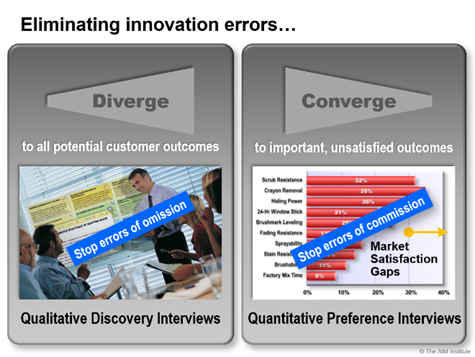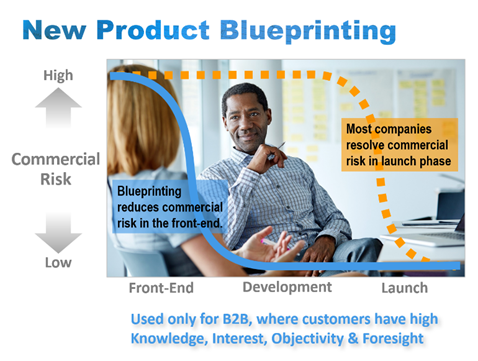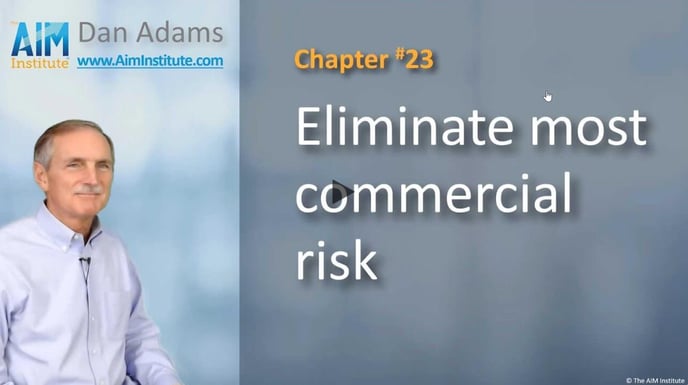3. How Blueprinting reduces commercial risk
Discovery and Preference interviews eliminate errors of omission and commission, respectively.
Most B2B companies tolerate far too much commercial risk in their product development. They do this because they allow high levels of two innovation errors:
- Errors of omission: This is failing to uncover customers’ unarticulated needs. Of course, no team is ever faulted for these, because no one notices an error of omission at the time. But the opportunity cost of these can be enormous. Discovery interviews minimize errors of omission.
- Errors of commission: This is choosing the wrong customer needs to pursue, and is very common. Many teams start with their own pre-conceived notions about customer needs—or worse, with their own solutions they hope customers want. Traditional interview methods allow the team to “hear what it wants to hear” and reinforce its confirmation bias. Not so with Preference interviews. Customers are asked to provide quantitative 1-to-10 importance and satisfaction ratings. And these results are delivered straight from the market to management without any filtering or bias by the team.

These two types of interviews are combined with other Blueprinting practices, such as…
- Interviewing multiple job functions at each customer
- Interviewing multiple customers and prospects in the market segment
- Interviewing other companies down the value chain
- Using advance B2B probing methods for in-depth insight
Taken together, these practices dramatically reduce the team’s commercial risk. Turns out most companies don’t seriously address commercial risk until the launch phase. Have you ever heard this conversation?...
- Question: “How’s your new product doing?”
- Response: “We’ll launch it next week and find out.”
This is common today… but will be seen as ridiculous by B2B companies in the future. Virtually everything a team needs to know about customer needs is just as knowable in the front end of innovation as it is in the development stage or the launch stage.

Bottom line: If you have products in the development stage of your pipeline, it’s perfectly fine for them to have technical risk. But if they have much commercial risk, you should ask why you’re allowing this.
For more on how Blueprinting reduces commercial risk, download the AIM white paper, Timing is Everything, pp. 7-10. Also check out the 2-minute video, Eliminate most commercial risk, part of the B2B Organic Growth video series by Dan Adams.
Keywords: commercial risk, technical risk, error of omission, error of commission, New Product Blueprinting, B2B product development, divergent interviews, convergent interviewsB2B Organic Growth video 23
